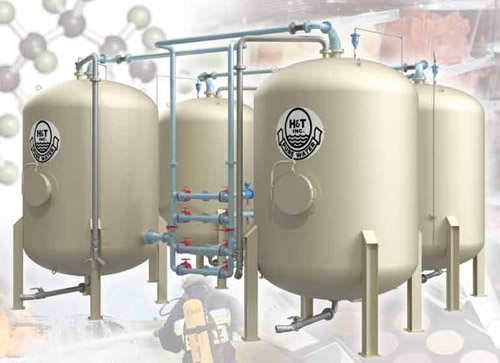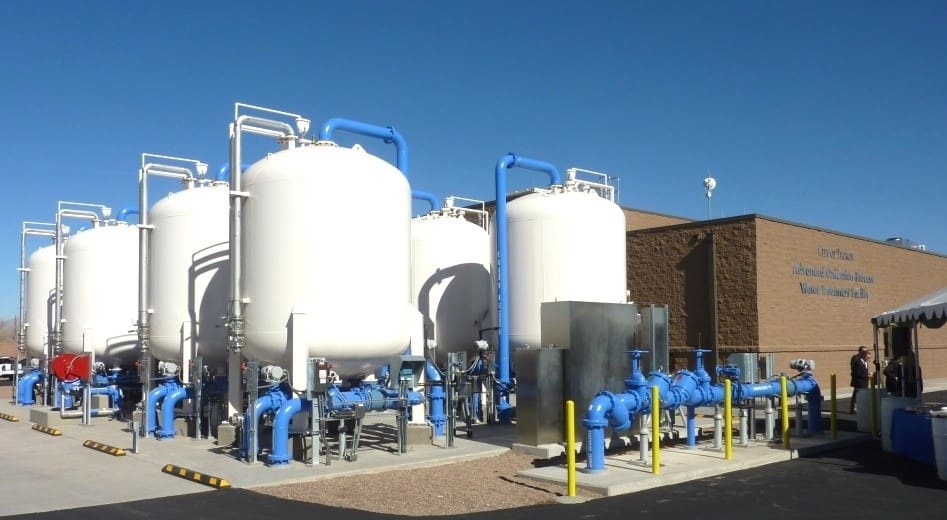The Importance of PFAS Treatment in Restoring Polluted Water
The Importance of PFAS Treatment in Restoring Polluted Water
Blog Article
Exactly How PFAS Therapy Makes Sure Tidy and Sustainable Water
The presence of PFAS, typically known as "forever chemicals," positions significant challenges to water quality and public health. The implications of these therapies expand beyond immediate health advantages; they elevate critical inquiries concerning lasting water monitoring methods that need to be dealt with to make sure a resistant future.

Recognizing PFAS Contamination
PFAS, or per- and polyfluoroalkyl substances, have arised as a substantial environmental worry because of their prevalent prevalence and persistence in the atmosphere. These artificial chemicals have actually been utilized in numerous industrial applications and customer items, including non-stick kitchenware, water-proof clothing, and food product packaging, because of their unique homes such as water and oil resistance.
The contamination of dirt and water resources by PFAS occurs mostly via commercial discharges, firefighting foam usage, and leaching from landfills. pfas management. Once released, these compounds are resistant to deterioration, resulting in their build-up in the environment. This persistence raises critical issues, as PFAS can take a trip lengthy distances with groundwater and surface area water systems, impacting drinking water products and ecosystems

Wellness Threats of PFAS
The perseverance of PFAS in the environment raises considerable health issues for people subjected to these substances. Recognized as "forever chemicals," PFAS do not break down conveniently and can gather in bodies gradually. Research study has actually linked PFAS exposure to numerous damaging health and wellness effects, including body immune system disorder, liver damage, and increased threat of specific cancers - pfas management. Especially, research studies have revealed raised cholesterol levels and possible effects on reproductive and developmental wellness, specifically in expecting individuals and babies.
The universality of PFAS in consumer products, such as non-stick pots and pans, water-repellent textiles, and food packaging, additional amplifies the threat of exposure. Consuming water contaminated with PFAS is a substantial worry, as these chemicals can leach right into groundwater sources. Prone populations, including youngsters and those living near industrial websites, may encounter increased dangers due to their establishing systems and potential for greater direct exposure levels.
As understanding of these wellness risks proceeds to grow, regulative agencies are starting to establish guidelines for PFAS degrees in drinking water. Public health and wellness campaigns are vital to reduce direct exposure and safeguard areas from the long-term impacts of these unsafe substances.

Cutting-edge Therapy Technologies
Exactly how can we successfully take on the challenges positioned by PFAS contamination in water sources? Ingenious treatment modern technologies are becoming critical remedies in the pursuit for tidy water. These methods concentrate on the elimination or devastation of per- and polyfluoroalkyl materials (PFAS), which are well-known for their determination in the setting.
One appealing go to this web-site method is adsorption utilizing advanced products, such as turned on carbon and ion exchange materials. These materials have actually revealed efficiency in capturing PFAS molecules from water. An additional noteworthy technology is membrane layer purification, which makes use of nanofiltration and turn around osmosis to different impurities at the molecular degree, thus offering an obstacle versus PFAS.
In addition, progressed oxidation procedures (AOPs) utilize strong oxidants to break down PFAS substances into safe results. This approach is particularly efficient for treating extremely polluted water sources. Bioremediation techniques, utilizing specific bacteria, are additionally being checked out to deteriorate PFAS.
As research study continues, crossbreed systems that incorporate multiple modern technologies might offer improved efficiency, dealing with the intricacies of PFAS contamination. The development and application of these cutting-edge treatment modern technologies are vital actions towards making sure the safety and sustainability of our water sources.
Advantages of Reliable PFAS Therapy
Successfully dealing with PFAS contamination in water resources dramatically improves public wellness and ecological safety. PFAS, commonly referred to as "permanently chemicals," are immune to degradation and can build up in the human body, leading to severe health and wellness dangers such as cancer, liver damages, and body immune system dysfunction. By executing reliable treatment approaches, neighborhoods can reduce direct exposure to these damaging substances, eventually enhancing official source the health and wellness end results of their populations.
Additionally, effective PFAS therapy contributes to the preservation of regional ecosystems. Contaminated water can negatively impact water life and interfere with the delicate equilibrium of regional environments. By ensuring clean water, treatment procedures secure biodiversity and keep eco-friendly honesty.
In addition, reliable PFAS removal can cultivate public confidence in water quality. When neighborhoods are assured that their drinking water is devoid of damaging impurities, it advertises a sense of safety and security and wellness. This trust is essential for community engagement and support for continuous water administration campaigns.
Future of Water Sustainability
In the middle of expanding concerns about water top quality and shortage, the future of water sustainability depends upon cutting-edge methods and collaborative initiatives. As communities encounter the looming risks of impurities like PFAS, the advancement of advanced treatment modern technologies is crucial. These modern technologies not just concentrate on the removal of damaging compounds but likewise advertise the reuse and recycling of water, consequently minimizing general demand.
Furthermore, effective water administration plays a crucial duty in making certain lasting practices. Policymakers need to incorporate clinical study with regulatory frameworks to establish clear standards for water use and therapy. Stakeholder involvement, including regional communities and markets, promotes a sense of common responsibility and encourages lasting practices throughout various fields.
Financial investment in facilities is additionally important; updating aging systems to include important site modern filtering and filtration techniques can substantially improve water top quality. Embracing environment-friendly modern technologies, such as all-natural purification systems, can provide eco-friendly services.
Inevitably, the future of water sustainability depends on an alternative strategy that incorporates technology, policy, and neighborhood participation. By prioritizing these components, we can secure our water resources for generations ahead, guaranteeing tidy and sustainable water for all.
Verdict
In final thought, the effective treatment of PFAS is important for ensuring clean and lasting water. Inevitably, durable PFAS therapy techniques contribute to lasting strength in water management, fostering public depend on in water quality and advertising sustainable methods.
Report this page